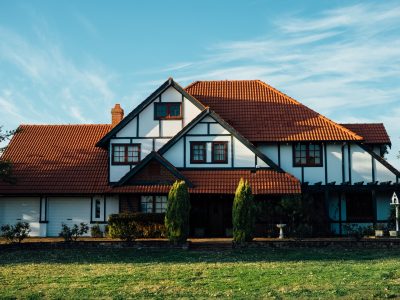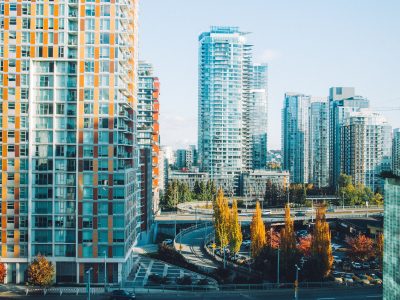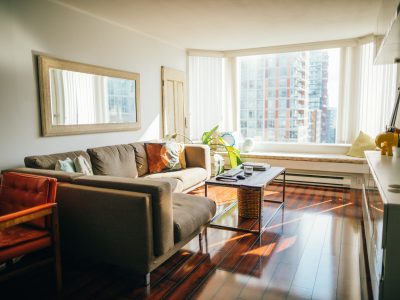 There are no restrictions on foreigners buying or renting residential properties in Canada. However, purchasing or renting a home in this country does not give privileges to those willing to obtain a residence permit or citizenship.
There are no restrictions on foreigners buying or renting residential properties in Canada. However, purchasing or renting a home in this country does not give privileges to those willing to obtain a residence permit or citizenship.
Rent vs. Buy
Newcomers in Canada often ask themselves a question: what is more cost-efficient: take a loan and pay a mortgage for 10–25 years or rent a house and pay rent every month?
The average cost of a single-family house in Canada is C$670,900. For instance, for this price, you can buy a good-quality four-bedroom house in a suburb of Ottawa in Ontario. If you get a mortgage to buy this home, your minimum down payment will be C$234,815 (35%), and total mortgage required will be C$436,085. If you take a 25-year mortgage at 4% interest rate, your monthly mortgage payment will be C$2,294.
You would rent a similar house in the same location for around 2,900 per month. You would pay an additional C$285 for utilities, cable, and Internet. In total, your monthly expenses would amount to C$3,185 — it is roughly the same amount of money you would pay if you took a mortgage loan on this house. There is a crucial difference though: you will never own this house.
Buying vs. renting expenses for a four-bedroom house in Ontario, CAD
Sources: Realtor.ca, Rentals.ca
| Homeowner’s expenses | Tenant’s expenses |
Initial expenses: 246,379
|
Initial expenses: 0 |
| Monthly mortgage payment: 2,294 | Monthly rent: 2,900 |
| Total monthly expenses (including mortgage, utilities, property tax, insurance, cable, Internet): 3,188 | Total monthly expenses (including rent, utilities, cable, Internet): 3,185 |
Thus, even though you need a large down payment, it is more advantageous to take a mortgage loan to buy a house instead of renting it and giving your money to a landlord. Purchasing a home is especially advisable if you are moving to a city where you hope to spend more than five years.
Rent and Purchase Prices in Canada
Regardless of what your decision might be — renting or buying, keep in mind that Canada is a large country, and property prices can vary significantly from sea to sea.
Montreal remains Canada’s most affordable big city to rent a home. The average price of a month’s rent is C$1,300 outside of the city centre and C$2,000 near downtown. This compares favourably with other Canadian cities such as Toronto (C$2,600 – 3,500 per month) and Vancouver (C$2,600 – 3,600 per month).
In addition, Montreal is one of the most affordable cities to buy a home. The average purchase price stands at C$296,600 for an apartment and C$375,000 for a house. Edmonton and Saskatoon are even more affordable with apartments costing less than C$200,000 on average.
The most expensive property market in Canada is Vancouver: be prepared to pay C$656,900 on average for an apartment and a whopping C$1,441,000 for a single-family house. Next in line is Toronto with apartments costing C$522,300 on average and houses priced at C$873,100.
Average property purchase and rental prices in Canadian cities, CAD
Sources: CREA, Numbeo
| Apartment price | Single family house price | Price per square metre | Rental price per month (3 bedrooms) | |
| Calgary | 249,300 | 457,600 | 3,200 – 5,000 | 1,600 – 2,100 |
| Edmonton | 188,300 | 372,100 | 2,500 – 3,300 | 1,500 – 1,900 |
| Hamilton | 402,400 | 630,000 | 3,600 – 4,500 | 1,500 – 1,700 |
| Montreal | 296,600 | 375,000 | 3,300 – 5,300 | 1,300 – 2,000 |
| Ottawa | 297,900 | 444,500 | 2,800 – 4,800 | 1,600 – 2,100 |
| Saskatoon | 170,800 | 301,900 | 2,500 – 2,700 | 1,400 – 1,600 |
| Toronto | 522,300 | 873,100 | 8,200 – 10,300 | 2,600 – 3,500 |
| Vancouver | 656,900 | 1,441,000 | 8,900 – 11,700 | 2,600 – 3,600 |
Single-Family vs. Multifamily Housing
Another common question is about the choice between a house and apartment (or a condo).
Multifamily buildings are usually close to the downtown with its offices and entertainment. Plus, multifamily units typically do not require spending much time on maintenance, and fees can be less and easier to budget for since they are a set monthly cost.
Unlike multifamily buildings, single-family houses are usually located far from the downtown core, and it means longer commuting to work. And houses require more time and money for maintenance: if there is a problem with the roof or any other emergency repairs are required, it is something you should take care of yourself — there is no management company to help you. Moreover, single-family houses cost more: in March 2019, the average price for an apartment in Canada stood at C$466,200 against C$670,900 for a single-family house.
However, as apartments or condos with more than three bedrooms are hard to find in Canada, buying or renting a house may be a better option for families with several children. Plus, single-family houses offer more outdoor space (there can be a one- or two-car garage and a backyard) and more privacy, while residents of apartments or condos share common areas and have much less privacy.
Condo or apartment buyers are often single young people purchasing their first home and using it as a stepping stone towards owning a house. Older couples and empty nesters also often buy multifamily units to downsize and save money.
 What is a Condo
What is a Condo
Residential units in high-rise buildings in the larger cities in Canada are often called ‘condominiums’ or simply ‘condos’. In British Columbia, condos are often referred to as ‘strata title’, and in Quebec, the term ‘divided co-property’ (‘copropriété divisée’ in French) is used. They are not the same thing as apartments. Here are the essential differences between them:
- Ownership and management. An apartment building is typically owned by a professional leasing company that rents out individual apartments. And condominium units are owned by separate condo owners and managed by a condominium corporation under the supervision of condo owners who make up the condo board. The corporation owns the land and common areas of the building. If you rent a condo, you deal directly with condo owners who might be overprotective and willing to check in on their property regularly.
- Price and amenities. Condos are more expensive to rent than apartments because condominium buildings have more amenities (a gym, party room, parking, swimming pool, movie room, sauna, outdoor patio with BBQ sets, etc. — depending on the complex).
If you are not too picky about amenities in the building, you do not care too much about proximity to the downtown, and you want to make sure that you do not overpay, you are probably better off with an apartment.
If you like having a wide choice of amenities and enjoy living a few steps away from a subway station or your work, then a condo might be the right choice for you.
Mortgage in Canada
Anyone having sufficient funds and good credit history can apply for a mortgage. Many Canadian banks (including CIBC, TD, and Scotia Bank) even lend to non-residents.
The minimum down payment is typically 35%, but it may be lower if you are a permanent resident with a good credit history in Canada. Terms range from six months to 5 years with the possibility to further extend the agreement to 10–25 years. Rates can be variable or fixed. The average fixed rates are 3–4% per annum. You can compare interest rates using the website Ratehub.ca. Also, if your down payment is less than 20%, you need to pay for insurance (around C$50 a month).
To get a mortgage in Canada, you need to open an account at a Canadian bank. Funds for a down payment are required to be in the account for at least 30 days. You need to provide the following documents for obtaining a mortgage loan in Canada:
- ID (your passport or Canadian driver’s license)
- Application form
- Proof of income (salary, business income, dividends)
- Certificate of no tax arrears
- Permanent Resident card or a valid visa, as well as a work permit (if you have one)
- Letters of reference from your home country’s bank or international credit organization
 Home Maintenance Costs
Home Maintenance Costs
If you rent a home, you pay utility bills yourself or they can be included in your monthly rent. Keep in mind that your entire monthly housing costs (including your monthly rent and utilities) should be less than 30% of your household income before taxes.
If you are a homeowner, you are responsible for paying utility bills, the annual property tax, and insurance. Home maintenance in Canada costs owners about C$6,000 a year on average.
The annual property tax in Canada is calculated individually and averages 1–2% of the assessed value. This tax is about C$3,000 a year for houses and about C$2,500 for apartments.
In Vancouver, there is also the Empty Homes Tax, which is paid at a rate of 1% of the assessed taxable value by owners of properties that stand vacant for more than six months a year. All owners in Vancouver must file a declaration, even if they are not required to pay this tax.
Utility bills in Canada normally include only electricity fees. Most Canadians have access to free tap water, homes are heated with electric power, and kitchens are equipped with electric stoves. Owners of apartments typically pay around C$50 a month for electricity plus pay C$100–300 per month as common area maintenance charges. The cost of electricity for house owners averages around C$250–300 per month.
According to Numbeo’s website, utilities for an 85 m² apartment in Canada cost about C$140 per month on average. Among the major cities, utilities are the most expensive in Saskatoon (more than C$220 a month), and they are the cheapest in Vancouver (about C$80) and Montreal (about C$100).
Average monthly utility bills in Canadian cities (for an 85 m² apartment), CAD:
- Calgary: 192
- Edmonton: 172
- Hamilton: 130
- Montreal: 102
- Ottawa: 165
- Quebec City: 108
- Saskatoon: 224
- Toronto: 155
- Vancouver: 78
- Winnipeg: 146
You may also have to pay for Internet. According to Numbeo, the average cost of the Internet in Canada is C$74 per month.
Insurance is yet another expense item: homeowners are subject to compulsory insurance costing around C$30–50 per month.
Steps for Renting a Home
If you wish to rent a home in Canada, follow these steps.
- Preparing documents. Canadian laws are pro-tenant: landlords have hard time evicting tenants without showing a reason outlined by legislation. That is why property owners pay close attention to tenants’ ability to pay. To prove your financial solvency, you need to provide:
- Copy of your credit report
- Proof of income (a letter from your current or most recent employer, bank statements)
- Letters of reference from your previous landlords
- Guarantor (someone who promises to make payment for you if you fail to pay rent)
- Finding a temporary home. If you did not rent a home before arriving in Canada, find temporary rental accommodation. You may choose to stay at your friends’, rent an Airbnb apartment or a hotel room. Renting an Airbnb apartment may be the best option: as a newcomer, you may not yet have Canadian friends, and hotel rooms can be expensive (C$1,000 or more per week).
Rentals in Canada tend to start on the 1st of every month. It is advisable to arrive around two weeks before month’s end.
- Finding a realtor. While you are still in your home country, you can contact Canadian realtors and even try to sign a rental agreement. Realtors do not charge tenants with fees. You also can check long-term rentals websites:
- www.kijiji.ca
- rentals.ca
- www.rentboard.ca/rentals
- www.zumper.com
- craigslist.org
- www.zoocasa.com
Most long-term rental apartments in Canada come unfurnished, though there can be a stove, a fridge, and sometimes a washing machine.
- Signing a lease (a written rental agreement) that outlines your and your landlord’s duties and rights as well as the rental price you have agreed to. You will likely have to sign a lease for a fixed term (often one year) and pay for 2 to 6 months ahead. Also, you need to pay at least half a month’s rent as a refundable security deposit.
Steps for Buying a Home
If you wish to buy a home in Canada, follow these steps.
- Transferring the funds to a Canadian bank. Depending on the country of origin, it might take up to two weeks for your money to clear. That is why it is advisable to transfer your funds before you start your search.
- Choosing a home. To find a property in Canada, you can hire a realtor who will help you look around the local market. Realtor’s fees (2.5% of the purchase price) are paid by the seller. Or you can search properties online first with the help of the following websites:
- www.realtor.ca
- www.kijiji.ca
- www.point2homes.com
- www.zoocasa.com
- Preparing the Offer to Purchase. The realtor helps you to prepare the Offer to Purchase to the seller. While presenting the Offer, you need to pay 10% of the purchase price as a deposit. From this moment on, it usually takes 30–60 days to close a deal. The process can be delayed up to 90 days if you apply for a mortgage loan.
- Applying for a mortgage (if needed).
- Due diligence. A copy of the signed agreement is sent to a lawyer (or to a notary in Quebec) who searches the title, checks government regulations, and ensures whether property taxes are paid and that there are no liens.
- Home inspection (not mandatory). You can hire a home inspector who will check the structural defects of the building, the condition of plumbing and electrical wiring. A home inspection typically costs between C$300 and C$500.
- Closing. The lawyer prepares a Statement of Adjustment which will confirm the selling price.
- Registering a property. Finally, the lawyer registers the home in your name, and you get the title and keys to your new home.
Costs Related to Buying a Home
The buyer bears the following expenses:
- Provincial Land Transfer Tax (LTT) on second-hand property purchases — 0.5–2% (not levied in Alberta, Nova Scotia, and rural areas of Saskatchewan)
- Goods and Services Tax (GST) — 5–15% and Provincial Sales Tax (PST) — 0–10% on a newly built property (normally included in the purchase price)
- Non-Resident Speculation Tax (NRST) — 20% in Vancouver (and several other municipalities of British Columbia) and 15% in Toronto (and a number of other municipalities of Ontario). This amount will be refunded after two years if you are waiting for a residence permit and live in the purchased property
- Legal fees — 0.5–1% (a minimum of C$500 plus GST)
- Title insurance — a couple of hundred dollars depending on the location, type, and value of the property
- Estoppel Certificate Fee — C$10 (it is levied on purchasing condos, but not levied in Quebec)
